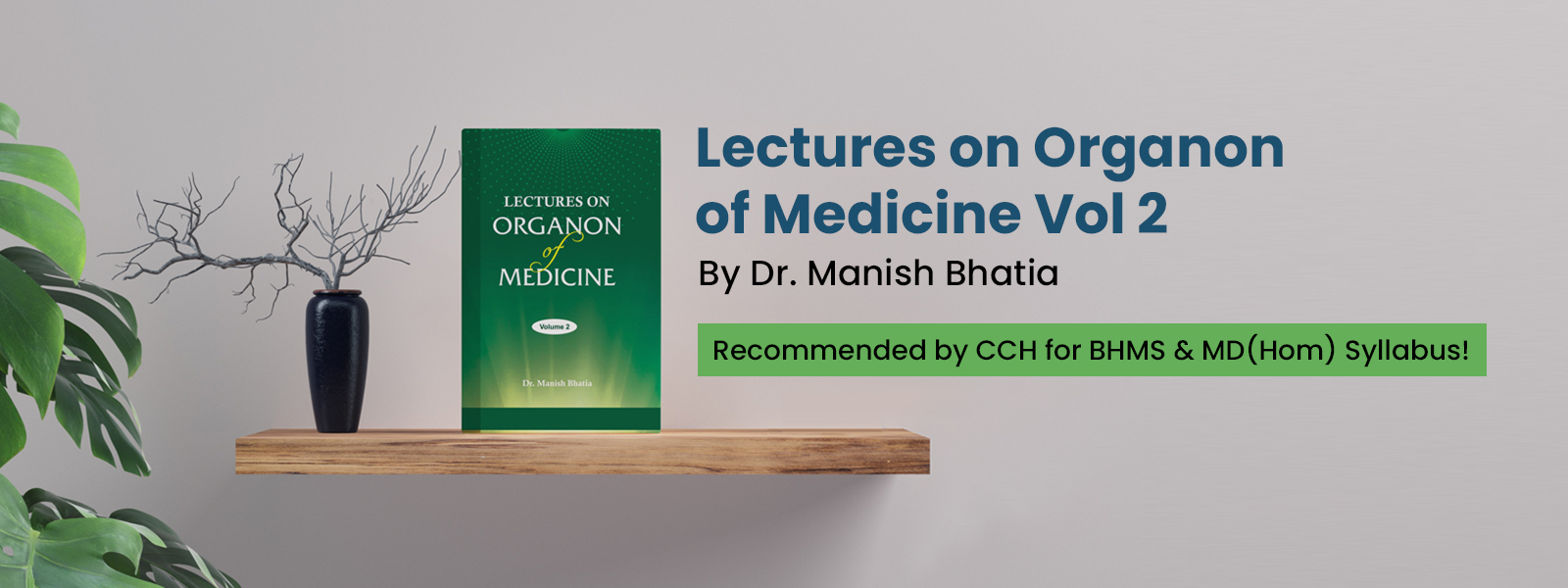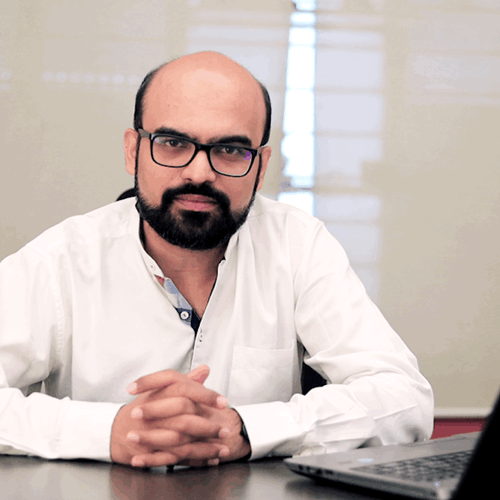
Lectures on Organon of Medicine vol 2 by Dr. Manish Bhatia
This second volume of Lectures on Organon of Medicine covers aphorisms 71 to 145.
This unique book by one of the most loved teachers of Organon of Medicine, fills a void in homeopathic literature. Dr. Bhatia’s lectures on Organon have been widely read by the community though journals as well as in the form of audio lectures. This book is a result of public demand to make all the lectures available in the book form.
This work is one of the most thorough reviews of Hahnemann’s words. Through this work, an effort has been made to make the words of Hahnemann easy to understand and follow. To take care of the translation errors in Organon of Medicine translations, all the translations of the 4th, 5th and 6th editions of the Organon were studied in parallel, and German scholars helped trace and correct several translation errors. The Dudgeon/Boericke translation (6th edition) was kept as the base for this work as it is the most popular of all the existing translations, but wherever there were significant differences or errors in translation, corrections were made to the aphorisms to make this work accurate and authentic.
The explanations of each aphorism by Dr. Bhatia in modern but easy language, scientific insights and new clinical examples make this book a MUST HAVE for every serious student and doctor of homeopathy.
Pages: 201, soft bound
ISBN: 978-81-927265-2-6
To buy in India, please order from Amazon.in or Flipkart.com.
For direct orders & bulk orders, write to [email protected]
What people are saying about this book!
This work forms the second volume of commentaries on Samuel Hahnemann’s Organon. And what impresses me about Dr. Bhatia’s work in this regard is his ability to take Hahnemann’s visionary work and make it relevant to our times. This relevance is not only for the specifics of homeopathic practice; Dr. Bhatia’s writing ability and encyclopedic style creates a fascinating and intriguing framework that makes you want to read more. He succeeds in giving both historical contexts as well as the motivations of what drove Hahnemann’s great creative force, understandings and even shortcomings.
Since this volume is on Aphorisms 72 to 145, its urgent modern significance becomes very apparent. It starts with a modernized perspective of Hahnemann’s assertion of how disease develops, not only in an individual way but also in the manner of greater societal and natural forces. Dr. Bhatia’s commentaries expand this understanding of infectious disease in a much larger and modern context. This includes a deeper discussion of miasms that is congruent with my understanding of the subject. The comprehensive nature of both Hahnemann’s work and Dr. Bhatia’s commentary on disease development also reminds us of the deficient understanding by conventional medicine of infectious contamination, and its impact on chronic disease when the infective agent no longer remains.
Dr. Bhatia gives us a modern insightful clarification of Hahnemann’s aphorisms of the “how” of practicing homeopathy with integrity. The key being the word is integrity- I very much liked his advice about how to make a modern practice have the values that Hahnemann emphasized.
Dr. Bhatia reflects Hahnemann’s thoroughness and expands on case taking in a most comprehensive way such that each detail is discussed in an approach that is interesting and pertinent. These discussions elucidate Hahnemann’s case taking procedures but are described in such a way that you can immediately access the “unprejudiced observer” mode that is necessary for a successful taking of the case.
From prejudice in case taking to how to formulate questions effectively, to the prescription of singular remedies- each detail is comprehensively described but not in a pedantic way. It thus forms a very important learning tool for acquiring the ability to practice effectively.
The other aspect of this set of Organon aphorisms include a treatise on the value, nature and method of Homeopathic Provings, preparation of remedies, and much more in regards to the fundamental nature of homeopathic remedies. Again, these topics are all discussed in a practical and creative method.
I found that the commentaries for these aphorisms to be thorough, accomplished, and yet exceptionally accessible. All in all, this is a welcome and impressive bridge between Hahnemann’s original work and our contemporary practice.

About the author
Dr. Manish Bhatia is the Founder Director of Hpathy.com & HomeopathyBooks.in, world’s leading homeopathy websites.
Dr. Bhatia runs a consultation office at Jaipur (Asha Homeopathy) and is one of the most well-known clinicians in India. He works as an Associate Professor of Organon of Medicine and Homeopathy Philosophy a SKH Medical College (Jaipur) and is a Faculty at the North Western Academy of Homeopathy (USA). He runs a homeopathy academy, Dr Bhatia’s Master Homeopathy Academy, for continued medical education for homeopaths.
He is an Editor of Homeopathy for Everyone, world’s leading homeopathy e-journal with more than 70,000 subscribers in 100+ countries.
He is also the author of several best-selling books. He is the author of “Lectures on Organon of Medicine, vol 1-3.” The book is approved by the C.C.H. (India) for BHMS and MD (Hom). His books on Organon are available in German and Bulgarian too and are used as an essential textbook all over the world. He is widely recognized among the best teachers of organon and homeopathic philosophy, globally. He is also a contributing author to the book “Homeopathy and Mental Health Care: Integrative Practice, Principles and Research.”
